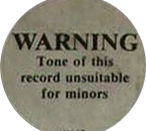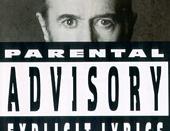As Americans, we are proud of our freedoms. The First Amendment states "Congress shall make no law... abridging the freedom of speech." This liberty, however, was challenged by Tipper Gore and her cronies in the mid-1980s with their Parental Advisory labels on albums. Artists no longer have a right to say what they want, and more importantly, we as consumers no longer have a right to buy what we want. Parental Advisory labels on albums are utterly useless, and infringe on our right to free speech.
In the fateful year of 1984, Tipper Gore, wife of then-Senator Al Gore, purchased an album by the artist Prince for her daughter. She had enjoyed some songs on the radio from this album, but when she heard some of the other, dirtier songs on the album, in particular "Darling Nikki," she became outraged and felt that artists were misrepresented on the radio. She didn't think, however, that maybe she should have reviewed the album before handing it to her daughter unthinkingly (Nuzum).
Gore seemed to believe that the responsibility for inappropriate material getting into the hands of children falls on the record companies, not the parents. This is obviously untrue. Would a parent not be held responsible if they were to give such "offensive" material to their own children in other forms, such as print matter? Newspapers often contain graphically violent content, but they aren't restricted from the hands of children. It is the parents' duty to keep out of their children's hands what they deem immoral.
Further infringing on artists' right to free speech as Americans, 2 Live Crew's 1989 album As Nasty As They Wanna Be was taken to court on obscenity charges. The group successfully brought down these preposterous accusations, stemming from a humorous track titled "Me So Horny." Artists...


